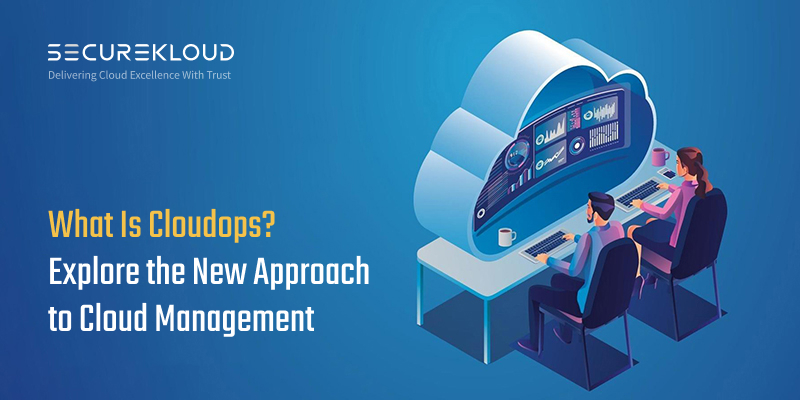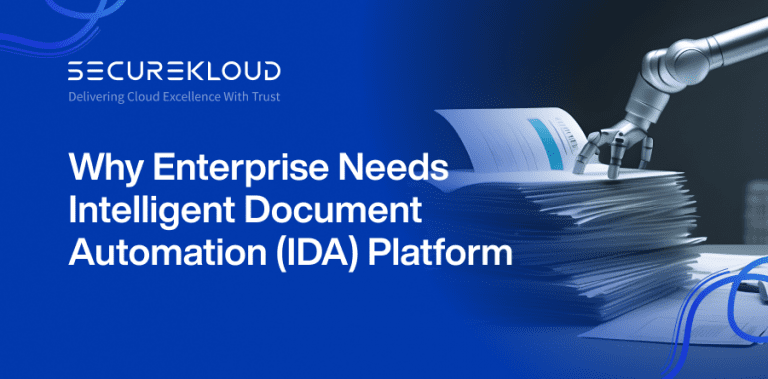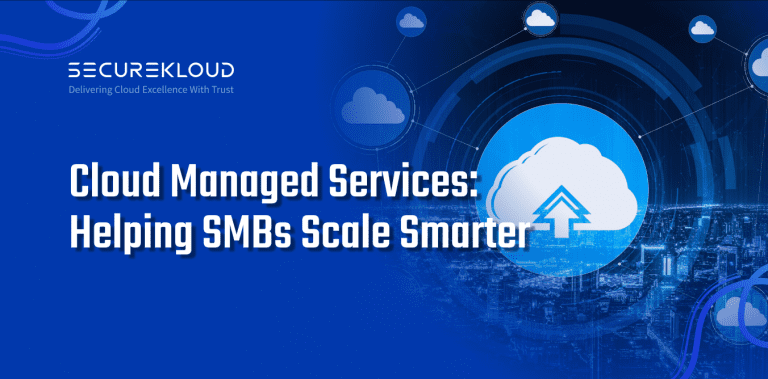- 7Minutes
- 1261Words
- 3Views
Finally, you have successfully got your workloads in the cloud! Now, the question arises–what’s next? Is your cloud computing a real success? Are you able to stay there and be effective with more and more application deployment and data storage in the cloud?
This is where a new discipline, CloudOps comes into the picture, a topic that rarely gets any attention.
With cloud computing surpassing modern technology, your organization needs more than “just” cloud management for business success and productivity. Consequently, a solid cloud operations management practice is crucial to confront the puzzling management demands of hybrid and multi-cloud computing models.
Hence, your team needs a strong CloudOps team with an effective cloud operations strategy to exploit the unique benefits of cloud computing. In this post, we’ll be decoding CloudOps. We’ll be diving into – how it differs from DevOps, the challenges involved, the benefits, and some of the best practices to get the most out of it.
Cloud Operations (CloudOps) Explained
Let’s begin with a basic definition of CloudOps. Cloud operations (also known as CloudOps) refers to a group of tasks that optimizes all workflows existing within the cloud to keep applications and their underlying infrastructure up and running. It includes:
- Managing networks and servers
- Ensuring the availability of services
- Risk management
- Disaster recovery
- Change management, and others
Evolved from ITOps and DevOps, CloudOps shares concepts from both these methodologies. For instance, CloudOps applies some DevOps methodologies, such as Continuous Integration and Continuous Deployment (CI/CD) to accelerate and continues improvement business processes. Moreover, it integrates analytics to improve the observability of cloud environments, providing the insight needed to control resources and run services more efficiently.
By incorporating automation capabilities into your cloud management, CloudOps lets you experience fewer issues with your cloud applications and data and fosters continuous operations.
CloudOps Vs. DevOps: How are they different?
CloudOps is situated at the intersection of cloud computing and DevOps. It pulls notions highly from DevOps methodology. If your organization is about to embrace digital transformation, then both CloudOps and DevOps are the two essential ingredients–but they just go about in different ways.
Emphasizing automation, both CloudOps and DevOps are agile development methodologies, and CloudOps can be considered an extension of DevOps. Like how DevOps methodizes software development and delivery processes, CloudOps methodizes best practices and procedures for cloud-based operational processes.
DevOps brings two traditionally different teams, i.e., developers and operations together to work toward greatly reducing distractions to operations and development cycles. CloudOps uses some of these DevOps concepts and complements them by pushing the operations to the cloud, thereby serving as one of the DevOps enablers. If you need to deliver software products and services more frequently in a cost-effective manner, to provide a scalable, flexible, and secure cloud environment, then CloudOps and DevOps can be the secret sauce to success.
What are the benefits of CloudOps?
CloudOps is a critical strategy in modern operations management that allows various teams to work together in a continuous pipeline and achieve positive results. Some of the major reasons to implement CloudOps include:
- Accelerated Automation – By leveraging IaC (Infrastructure as Code) technologies, you can employ more automated functions for provisioning the infrastructure, deploying, monitoring, reporting, and other routine tasks, thereby reducing the time to market.
- Continuous Operations – As CloudOps shares some of the DevOps concepts such as CI/CD, automation, etc., it ensures continuous operations, which means seamless software updates and maintenance conduct without causing any service disruptions.
- Enhanced Security – CloudOps brings in best practices and security and is responsible for your organization to stay in compliance with regulatory standards such as GDPR (General Data Protection Regulation), Center for Internet Security (CIS), HIPAA (Health Insurance Portability and Accountability Act), and NIST (National Institute of Standards Technology).
- Increased flexibility, scalability, and reliability – Compared to traditional operations, it’s easier to scale cloud operations, which further makes it easier to deploy applications and services. With CloudOps, your organization can quickly adapt to the changing market demands.
- Ensures Disaster Recovery – CloudOps facilities disaster recovery function and involves automated tools to provide backup, restore data, and guarantee business continuity in the event of a disaster.
CloudOps challenges that businesses face
Understanding where we are failing with regard to CloudOps is essential to build a successful cloud operations strategy. Let’s look into some of the challenges that affect the CloudOps function.
Skills and Talent Shortage – Cloud talent crunch is the biggest challenge affecting CloudOps and the lack of essential digital skills can pose a threat to your business.
Rising Security Threats – As cloud environments are remotely accessible, it remains vulnerable to various attacks. For this very reason, cybersecurity attacks are continuing to make headlines and cloud experts are constantly refining security trends to avert any such attacks/breaches.
Lack of Governance – With cloud computing comes the benefit of rapid scaling, which in turn can impact might cloud governance. With quick scaling, it becomes more difficult to have proper oversight of all workloads in the cloud and manage budget, governance, and compliance.
Potential Budget Overages – Scaling of cloud resources often comes at a cost due to overprovisioning, underutilized space, and idle cloud assets. Hence, it should comply with your organization’s associated cloud budget.
Lack of Planning – Generally enterprises initiate their cloud move with no idea as to how they will operate those applications and handle the data once they are in the cloud. CloudOps should have specific planning and strategy in place before the migrations and development take place to avoid complexities due to a lack of ongoing coordination.
Fortunately, enterprises can create a cloud operations strategy that addresses these complexities to alleviate the risks and thus realize the maximum value of CloudOps.
Cloud operations best practices to up your cloud game
Do you wish to elevate your CloudOps function or are not sure how to effectively implement the same? Then here are a few best practices to elevate your CloudOps.
- Have an efficient migration strategy incorporating the best skillset and tools you need for a successful transition
- Automate security and compliance tasks and perform frequent audits to check your compliance status
- Partner with a good cloud service provider that automates, scales, and secures
- Make security systematic throughout CloudOps functions and ensure that the resources you deploy are highly available with robust security controls
- Develop an automated approach for you to manage cloud, especially for routine provisioning tasks
- Ensure that you monitor costs and set limits to avoid expensive blows as most cloud vendors have a complicated billing process
- The CloudOps team must champion a cultural shift, and everyone must be well-trained for a successful CloudOps implementation
Is CloudOps the cloud management approach of the future?
Recently CloudOps has gained momentum as it primarily solves three main challenges associated with cloud–control, security, and visibility. With cloud complexity on the rise, CloudOps can no longer be an afterthought, but a vital component of the modern enterprise. Consequently, we will see a rapid increase in its usage as it provides more automation, analytics, machine learning (ML), and AI capabilities, which enable the self-provisioning and self-healing of cloud environments. You need to redefine old operating models and processes to realize the full potential of the cloud.
As an experienced CloudOps provider, SecureKloud has helped many enterprises including the F500 ones, understand the nuances of cloud operations and get the most out of it while ensuring security and compliance. Contact us to know how we can help your IT team in focusing on your core business rather than the complexities of cloud operations.





